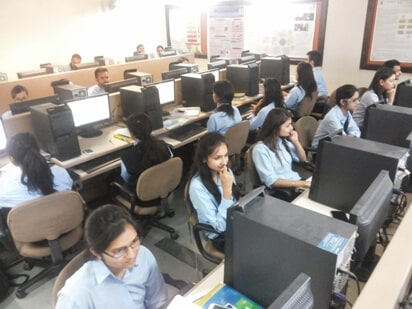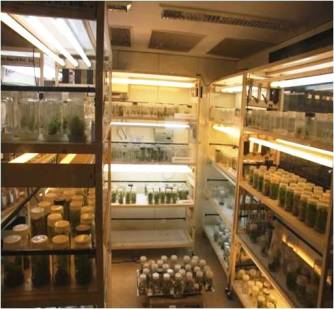Programme Educational Objectives (PEOs) (B.Tech. Biotechnology)
PEO-1: To provide basic and advance knowledge in biotechnology and related disciplines for achieving advancements in academia and industry
PEO-2: To inculcate analytical, research skills and entrepreneurial endeavours to develop innovative products/processes for the societal benefits
PEO-3: To develop team spirit and ethical behaviour for working successfully in industry, academia, and government organizations
Programme Specific Outcomes (PSOs) (B.Tech. Biotechnology)
PSO-1:Thorough knowledge of fundamentals, practical skills and their potential application with ethical responsibilities across Biotechnology disciplines
PSO-2:Ability to generate hypotheses, and prove it by drawing clear conclusions through designing, conducting and data interpretation of experiments.
Programme Educational Objectives (PEOs) (B.Tech. Bioinformatics)
PEO-1: Enrich knowledge in Bioinformatics domain to integrate techniques across disciplinary boundaries.
PEO-2: Enable to identify, analyze and solve real world problems with skills and novelty in computational biology.
PEO-3:Inculcate spirit of teamwork, constructive thinking, ethical behaviour and professionalism.
Programme Specific Outcomes (PSOs) (B.Tech. Bioinformatics)
PSO-1:Graduates will demonstrate thorough knowledge and technical competence to provide novel solutions in biology.
PSO-2:To construct knowledge bases and expert systems using high throughput biological datasets towards value addition and developing computational solutions.
PSO-3:Graduates will demonstrate thorough capability to design and develop algorithms, software, bioinformatics pipelines and other computational platforms with potential impacts in industry.
Programme Outcomes (POs)
Engineering Graduates will be able to:
- 1. Engineering knowledge:Apply the knowledge of mathematics, science, engineering fundamentals, and an engineering specialization to the solution of complex engineering problems.
- 2. Problem analysis: Identify, formulate, review research literature, and analyze complex engineering problems reaching substantiated conclusions using first principles of mathematics, natural sciences, and engineering sciences.
- 3. Design/development of solutions: Design solutions for complex engineering problems and design system components or processes that meet the specified needs with appropriate consideration for the public health and safety, and the cultural, societal, and environmental considerations.
- 4. Conduct investigations of complex problems: Use research-based knowledge and research methods including design of experiments, analysis and interpretation of data, and synthesis of the information to provide valid conclusions.
- 5. Modern tool usage: Create, select, and apply appropriate techniques, resources, and modern engineering and IT tools including prediction and modeling to complex engineering activities with an understanding of the limitations.
- 6. The engineer and society: Apply reasoning informed by the contextual knowledge to assess societal, health, safety, legal and cultural issues and the consequent responsibilities relevant to the professional engineering practice.
- 7. Environment and sustainability: Understand the impact of the professional engineering solutions in societal and environmental contexts, and demonstrate the knowledge of, and need for sustainable development.
- 8. Ethics: Apply ethical principles and commit to professional ethics and responsibilities and norms of the engineering practice.
- 9. Individual and team work: Function effectively as an individual, and as a member or leader in diverse teams, and in multidisciplinary settings.
- 10. Communication: Communicate effectively on complex engineering activities with the engineering community and with society at large, such as, being able to comprehend and write effective reports and design documentation, make effective presentations, and give and receive clear instructions.
- 11. Project management and finance: Demonstrate knowledge and understanding of the engineering and management principles and apply these to one’s own work, as a member and leader in a team, to manage projects and in multidisciplinary environments.
- 12. Life-long learning: Recognize the need for, and have the preparation and ability to engage in independent and life-long learning in the broadest context of technological change.

